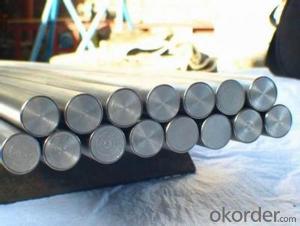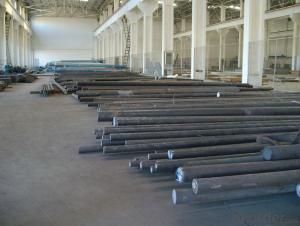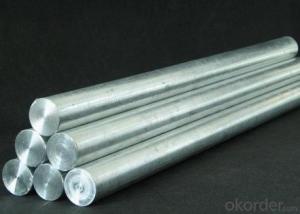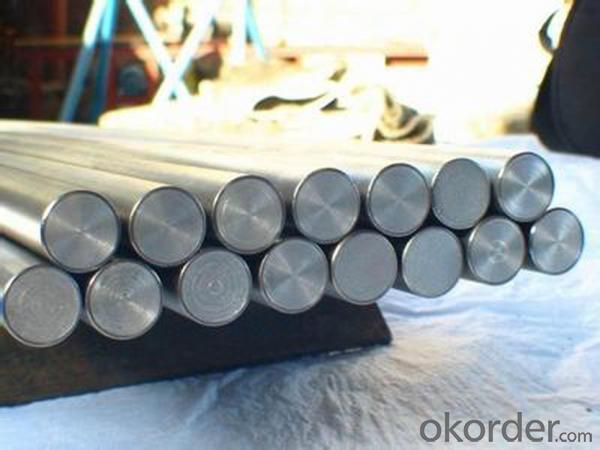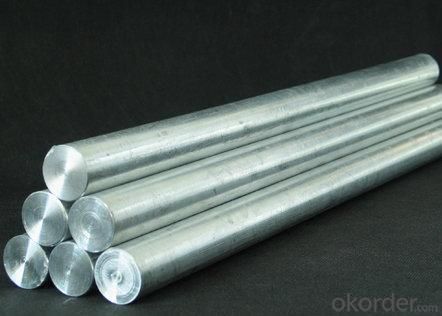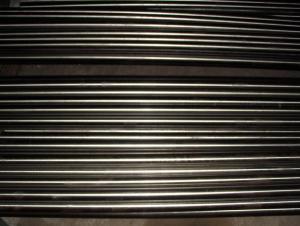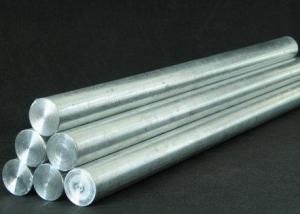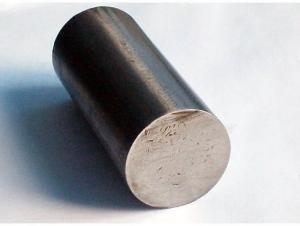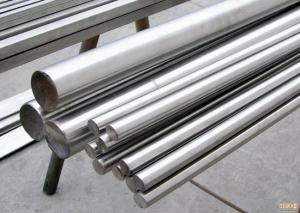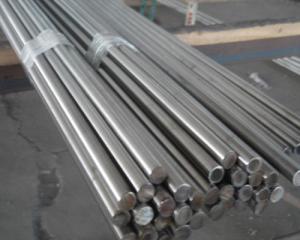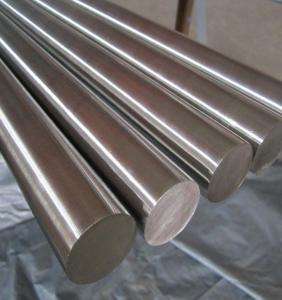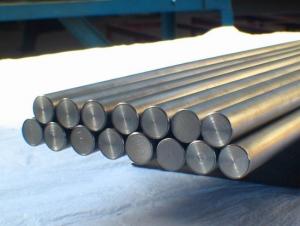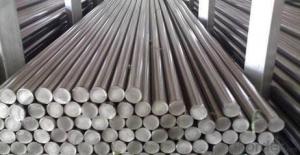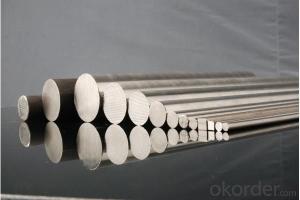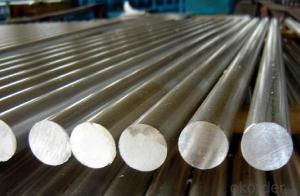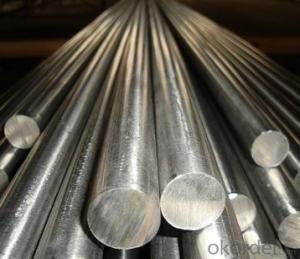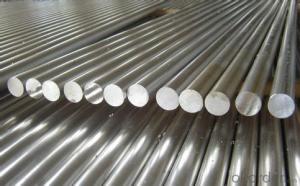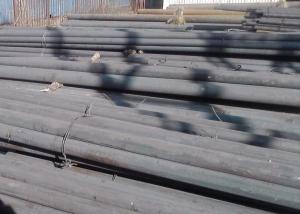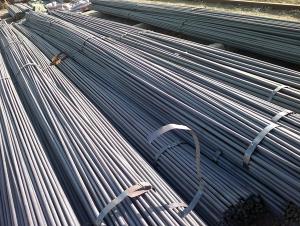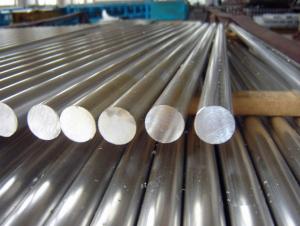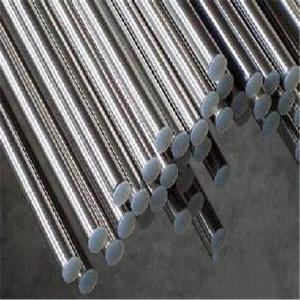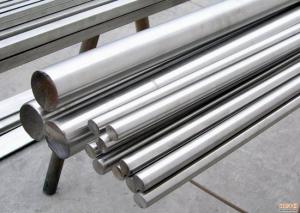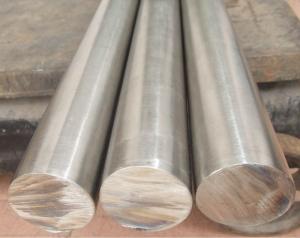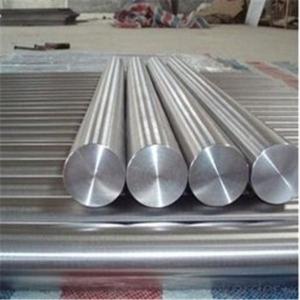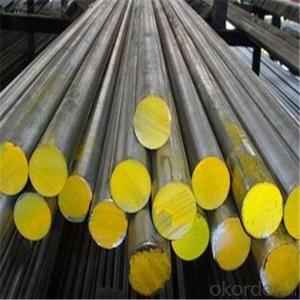Stainless steel round bar; high quality
- Loading Port:
- Guangzhou
- Payment Terms:
- TT OR LC
- Min Order Qty:
- 50 m.t.
- Supply Capability:
- 10000 m.t./month
OKorder Service Pledge
OKorder Financial Service
You Might Also Like
Quick Details
| Standard: | JIS,AISI,ASTM,GB,DIN | Dimensions: | 316 | Grade: | 300 Series |
| Place of Origin: | China (Mainland) | Brand Name: | CNBM | Model Number: | 316 |
| Type: | Round | Application: | Construction | Shape: | Round |
| Certification: | ISO | Steel Grade: | 300 Series |
Packaging & Delivery
| Packaging Detail: | in bundle |
| Delivery Detail: | depend on the quantity, but the earliest time will be 15days |
Specifications
AISI316 stainless steel round bar
surface finish:bright and polished
Moq:5tons
Delivery time within 15days
Product name | AISI304 stainless steel round bar |
Standard | GB JIS ASTM AISI DIN ect |
Material | AISI 202 202 304 304L 316 316L 321 309S 310S ect |
Diameter | 20mm-3000mm |
Length | 6m length or as customer demand |
Used area | Our products are widely used in the architecture and engineering structure. |
Package | In bundles,or provide the special package as customer demand |
Certification | ISO9001.2000, Mill Test Certificate |
Thirdparty inspection | OMIC,SGS, as customer demand |
Remark | We can customer made for special requirement |
We have been specialized in the steel products for nearly14years old, we are sure to satisfy you with professional knowledge, competitive price,and fast service, if you are interested on us, pls never hesitate to contact with us directly.
- Q: Are stainless steel bars suitable for dairy farming equipment?
- Yes, stainless steel bars are highly suitable for dairy farming equipment. Stainless steel is a popular choice in the dairy industry because of its numerous beneficial properties. Firstly, stainless steel is highly resistant to corrosion, which is essential in an environment like a dairy farm where there is constant exposure to water, cleaning agents, and chemicals. This corrosion resistance ensures the longevity and durability of the equipment, resulting in reduced maintenance and replacement costs. Additionally, stainless steel is a hygienic material that can be easily cleaned and sanitized. Dairy farming equipment needs to meet strict hygiene standards to ensure the safety and quality of dairy products. Stainless steel's smooth surface is non-porous, preventing the growth of bacteria, and making it easy to clean and maintain high standards of cleanliness. Another advantage of stainless steel is its strength and impact resistance. Dairy farming equipment often needs to withstand heavy loads, pressure, and rough handling. Stainless steel bars provide the necessary strength and durability to handle these conditions without bending or breaking. Furthermore, stainless steel is a non-reactive material, meaning it does not interact with milk or other dairy products. This ensures that the taste, quality, and nutritional value of the dairy products remain intact. In summary, stainless steel bars are an excellent choice for dairy farming equipment due to their corrosion resistance, hygienic properties, strength, and non-reactivity. Using stainless steel in dairy farming equipment ensures longevity, easy maintenance, and compliance with hygiene standards, making it a suitable and reliable material for the dairy industry.
- Q: 304 why are stainless steel bars hard and soft?
- Some are hot rolling and some cold rolling, the process is different, annealing also affects soft and hard
- Q: How do stainless steel bars resist acetic acid?
- Stainless steel bars resist acetic acid due to the presence of chromium and other alloying elements in their composition, which forms a passive protective layer on the surface of the steel. This protective layer acts as a barrier, preventing the acid from coming into direct contact with the steel and causing corrosion.
- Q: Are stainless steel bars suitable for structural applications?
- Yes, stainless steel bars are suitable for structural applications. They possess excellent strength, durability, and corrosion resistance, making them ideal for various structural projects. Stainless steel bars are commonly used in construction, architecture, and engineering industries to provide structural support and stability while maintaining an aesthetically pleasing appearance.
- Q: How are stainless steel bars used in the automotive industry?
- Stainless steel bars are commonly used in the automotive industry for various applications such as manufacturing chassis, exhaust systems, decorative trims, and structural components. They offer high strength, corrosion resistance, and durability, allowing car manufacturers to produce vehicles that can withstand harsh environmental conditions and provide long-lasting performance. Additionally, stainless steel bars are often used in the manufacturing of engine components, suspension systems, and fuel tanks due to their excellent heat resistance and mechanical properties.
- Q: What are the different types of corrosion tests for stainless steel bars?
- There are several types of corrosion tests that can be performed on stainless steel bars to evaluate their resistance to corrosion. Some of the commonly used tests include: 1. Salt Spray Test: This test involves exposing the stainless steel bars to a controlled salt spray environment. The bars are placed in a chamber where a saline solution is sprayed on them continuously. The test measures the ability of the stainless steel to withstand corrosion caused by saltwater exposure. 2. Pitting Corrosion Test: Pitting corrosion is a localized form of corrosion that can occur on stainless steel surfaces. This test evaluates the resistance of stainless steel bars to pitting by exposing them to a corrosive solution, typically containing chloride ions, and monitoring the formation and growth of pits on the surface. 3. Intergranular Corrosion Test: Intergranular corrosion is a type of corrosion that occurs along the grain boundaries of stainless steel, leading to the loss of mechanical strength. The test assesses the susceptibility of stainless steel bars to intergranular corrosion by subjecting them to a corrosive solution, such as boiling nitric acid, and examining the extent of corrosion along the grain boundaries. 4. Crevice Corrosion Test: Crevice corrosion is a localized form of corrosion that occurs in confined spaces or crevices, such as gaps between stainless steel bars. The test evaluates the resistance of stainless steel bars to crevice corrosion by creating artificial crevices and exposing them to a corrosive solution, usually with chloride ions, and observing the extent of corrosion in the crevices. 5. Erosion Corrosion Test: Erosion corrosion is caused by the combined action of corrosion and mechanical wear. This test measures the resistance of stainless steel bars to erosion corrosion by subjecting them to a corrosive fluid flow, typically with suspended particles, and assessing the extent of material loss due to corrosion and erosion. 6. Electrochemical Corrosion Test: Electrochemical corrosion tests, such as potentiodynamic polarization and electrochemical impedance spectroscopy, are used to evaluate the corrosion behavior of stainless steel bars under specific electrochemical conditions. These tests measure the corrosion rate, passivation potential, and other electrochemical parameters to assess the performance of stainless steel in different environments. These corrosion tests help in assessing the corrosion resistance of stainless steel bars and determining their suitability for various applications. It is important to select the appropriate test method based on the specific corrosion mechanism and environmental conditions that the stainless steel bars are expected to encounter.
- Q: What are the different types of stainless steel bars used in medical devices?
- There are several different types of stainless steel bars used in medical devices, each with its own unique properties and characteristics. Some of the most common types include: 1. 316L Stainless Steel: This is a low-carbon variation of the 316 grade stainless steel, which is known for its excellent corrosion resistance and high strength. It is widely used in medical devices due to its biocompatibility and resistance to pitting and crevice corrosion. 2. 304 Stainless Steel: This is another commonly used stainless steel grade in medical devices. It is known for its versatility, good corrosion resistance, and ease of fabrication. It is often used in medical instruments, implants, and surgical tools. 3. 17-4 PH Stainless Steel: This type of stainless steel is precipitation-hardened, which means it gains its strength through heat treatment. It offers a combination of high strength, good corrosion resistance, and good mechanical properties. It is often used in orthopedic implants and other structural components. 4. 420 Stainless Steel: This grade of stainless steel is known for its high hardness and wear resistance. It is often used in the manufacturing of surgical instruments, such as scalpels and forceps, where sharpness and durability are crucial. 5. Nitinol: While technically not a stainless steel, Nitinol is a nickel-titanium alloy that exhibits unique properties, such as shape memory and superelasticity. It is often used in medical devices, including stents and orthodontic wires, due to its biocompatibility and ability to return to its original shape after deformation. These are just a few examples of the different types of stainless steel bars used in medical devices. The selection of the appropriate grade depends on factors such as the specific application, desired mechanical properties, and corrosion resistance requirements.
- Q: Can stainless steel bars be used in the construction industry?
- Stainless steel bars are indeed applicable in the construction sector. The utilization of stainless steel brings forth numerous advantages that render it an appropriate material for construction purposes. Its notable corrosion resistance sets it apart, making it particularly suitable for environments that involve moisture, chemicals, or high humidity. Moreover, stainless steel bars exhibit durability and possess a high level of strength, rendering them fitting for structural components within buildings and infrastructure ventures. Furthermore, stainless steel bears an aesthetically pleasing quality, thus emerging as a favored selection for architectural intentions. In conclusion, stainless steel bars offer a dependable and multifaceted choice for the construction industry.
- Q: How do stainless steel bars resist alkaline solutions?
- Stainless steel bars resist alkaline solutions due to the presence of chromium in their composition, which forms a protective oxide layer on the surface. This oxide layer prevents the corrosive effects of alkaline solutions, making stainless steel bars highly resistant to their damaging effects.
- Q: Are stainless steel bars suitable for architectural column cladding?
- Yes, stainless steel bars are suitable for architectural column cladding. Stainless steel is known for its durability, corrosion resistance, and aesthetic appeal, making it an ideal material for cladding applications. It provides a sleek and modern look while also offering long-lasting performance, making it a popular choice for architectural column cladding.
Send your message to us
Stainless steel round bar; high quality
- Loading Port:
- Guangzhou
- Payment Terms:
- TT OR LC
- Min Order Qty:
- 50 m.t.
- Supply Capability:
- 10000 m.t./month
OKorder Service Pledge
OKorder Financial Service
Similar products
Hot products
Hot Searches
Related keywords
